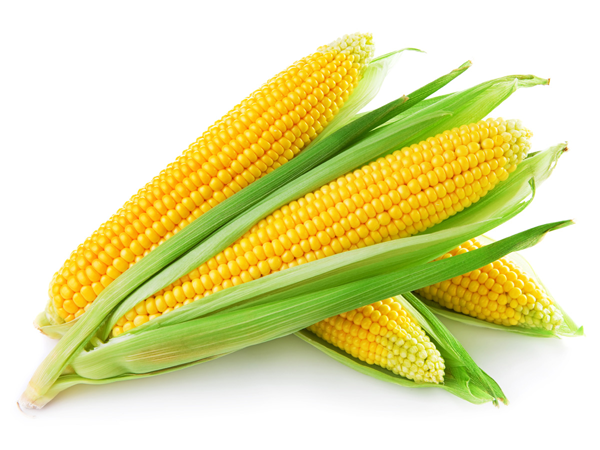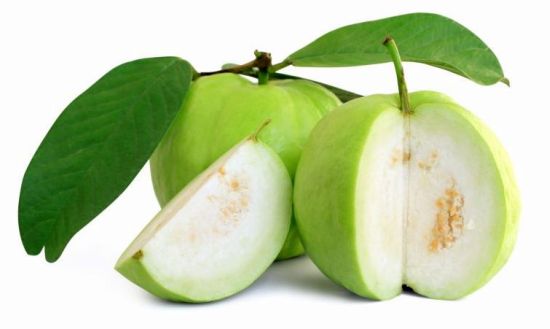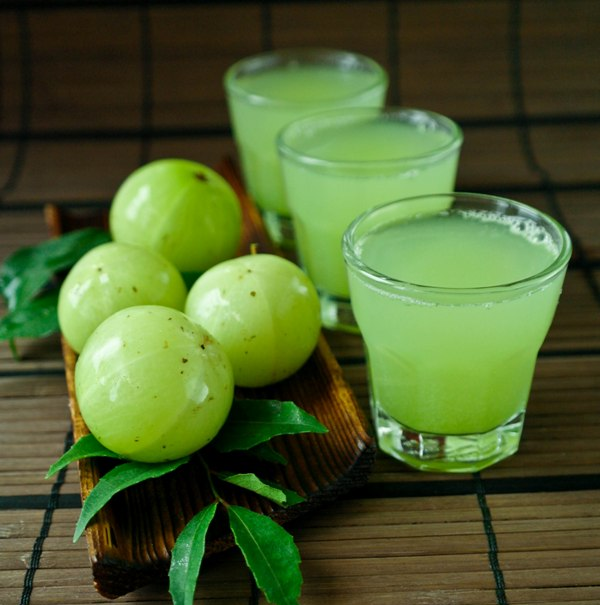Health benefits of corn include controlling diabetes, prevention of heart ailments, lowering hypertension and prevention of neural-tube defects at birth. Corn or maize is one of the most popular cereals in the world and forms the staple food in many countries, including the United States and many African countries.
The kernels of corn are what hold the majority of corn’s nutrients, and are the most commonly consumed parts of the vegetable. The kernels can come in multiple colors, depending on where the corn is grown and what species or variety they happen to be. Another genetic variant, called sweetcorn, has more sugar and less starch in the nutritive material.
Nutritional Value of Corn
Corn not only provides the necessary calories for healthy, daily metabolism, but is also a rich source of vitamins A, B, E and many minerals. Its high fiber content ensures that it plays a significant role in the prevention of digestive ailments like constipation and hemorrhoids as well as colorectal cancer. The antioxidants present in corn also act as anti-carcinogenic agents and prevent Alzheimer’s disease.
Health Benefits of Corn
Corn provides many health benefits due to the presence of quality nutrients within. Besides being a delicious addition to any meal, it is also rich in phytochemicals, and it provides protection against a number of chronic diseases. Some of the well-researched and widespread health benefits of corn are listed below.Rich source of calories: Corn is a rich source of calories and is a staple among dietary habits in many populations. The calorific content of corn is 342 calories per 100 grams, which is among the highest for cereals. It is why corn is often turned to for quick weight gain, and combined with the ease and flexibility of growing conditions for corn, the high calorie content makes it vital for the survival of dozens of agricultural-based nations.
Reduces risk of hemorrhoids and colorectal cancer: The fiber content of one cup of corn amounts to 18.4% of the daily recommended amount. This aids in alleviating digestive problems such as constipation and hemorrhoids, as well as lowering the risk of colon cancer due to corn being a whole-grain. Fiber has long been promoted as a way to reduce colon risk, but insufficient and conflicting data exists for fiber’s relationship with preventing cancer, although whole-grain consumption, on the whole, has been proven to reduce that risk. Fiber helps to bulk up bowel movements, which stimulates peristaltic motion and even stimulates the production of gastric juice and bile. It can also add bulk to overly loose stools, which can slow reduce the chances of Irritable Bowel Syndrome (IBS) and diarrhea.
Rich source of vitamins: Corn is rich in vitamin B constituents, especially Thiamin and Niacin. Thiamin is essential for maintaining nerve health and cognitive function. Niacin deficiency leads to Pellagra; a disease characterized by diarrhea, dementia and dermatitis that is commonly observed in malnourished individuals. Corn is also a good source of Pantothenic acid, which is an essential vitamin for carbohydrate, protein, and lipid metabolism in the body. Deficiency of folic acid in pregnant women can lead to the birth of underweight infants and may also result in neural tube defects in newborns. Corn provides a large percentage of the daily folate requirement, while the kernels of corn are rich in vitamin E, a natural antioxidant that is essential for growth and protection of the body from illness and disease.
Provides necessary minerals: Corn contains abundant minerals which positively benefit the bodies in a number of ways. phosphorous, along with magnesium, manganese, zinc, iron and copper are found in all varieties of corn. It also contains trace minerals like selenium, which are difficult to find in most normal diets. Phosphorous is essential for regulating normal growth, bone health and optimal kidney functioning. Magnesium is necessary for maintaining a normal heart rate and for increasing bone strength.
Antioxidant properties: According to studies carried out at Cornell University, corn is a rich source of antioxidants which fight cancer-causing free radicals. In fact, unlike many other foods, cooking actually increases the amount of usable antioxidants in sweet corn. Corn is a rich source of a phenolic compound called ferulic acid, an anti-carcinogenic agent that has been shown to be effective in fighting the tumors which lead to breast cancer as well as liver cancer. Anthocyanins, found in purple corn, also act as scavengers and eliminators of cancer-causing free radicals. Antioxidants have been shown to reduce many of the most dangerous forms of cancer because of their ability to induce apoptosis in cancerous cells, while leaving healthy cells unaffected. This is particularly relevant when phytochemicals are the source of the antioxidants, which is another type of chemical found in high volumes in corn.
Protecting Your Heart: According to researchers, corn oil has been shown to have an anti-atherogenic effect on cholesterol levels, thus reducing the risk of various cardiovascular diseases. Corn oil, particularly, is the best way to increase heart health, and this is derived from the fact that corn is close to an optimal fatty acid combination. This allows omega-3 fatty acids to strip away the damaging “bad” cholesterol and replace them at the binding sites. This will reduce the chances of arteries becoming clogged, will reduce blood pressure, and decrease the change of heart attack and stroke.
Prevents Anemia: The vitamin B12 and folic acid present in corn prevent anemia caused by a deficiency of these vitamins. Corn also has a significant level of iron, which is one of the essential minerals needed to form new red blood cells; a deficiency in iron is one of the main cause of anemia as well.
Lowers LDL Cholesterol: According to the Journal of Nutritional Biochemistry, consumption of corn husk oil lowers plasma LDL cholesterol by reducing cholesterol absorption in the body. As mentioned earlier, this reduction of LDL cholesterol does not mean a reduction in HDL cholesterol, which is considered “good cholesterol” and can have a variety of beneficial effects on the body, including the reduction of heart disease, prevention of atherosclerosis, and a general scavenger of free radicals throughout the body.
Vitamin-A Content: Yellow corn is a rich source of beta-carotene, which forms vitamin A in the body and is essential for the maintenance of good vision and skin. Beta-carotene is a great source of vitamin-A because it is converted within the body, but only in the amounts that the body requires. Vitamin-A can be toxic if too much is consumed, so deriving vitamin-A through beta-carotene transformation is ideal. Vitamin-A will also benefit the health of skin and mucus membranes, as well as boosting the immune system.
The amount of beta-carotene in the body that is not converted into vitamin-A acts as a very strong antioxidant, like all carotenoids, and can combat terrible diseases like cancer and heart disease. That being said, smokers need to be careful about their beta-carotene content, because smokers with high beta-carotene levels are more likely to contract lung cancer, while non-smokers with high beta-carotene content are less likely to contract lung cancer.
Controls diabetes and hypertension: In recent decades, the world has seemed to suffer from an epidemic of diabetes. Although the exact mechanism for this cannot be pinpointed, it is generally assumed to relate to nutrition. Eating more organic fruits and vegetables, like corn, has been thought to be a return to an older style of diet, and it has been linked to reduced signs of diabetes. Studies have shown that the consumption of corn kernels assists in the management of non-insulin dependent diabetes mellitus (NIDDM) and is effective against hypertension due to the presence of phenolic phytochemicals in whole corn. Phytochemicals can regulate the absorption and release of insulin in the body, which can reduce the chance of spikes and drops for diabetic patients and help them maintain a more normal lifestyle.
Cosmetic benefits: Corn starch is used in the manufacturing of many cosmetic products and may also be applied topically to soothe skin rashes and irritation. Corn products can be used to replace carcinogenic petroleum products which are major components of many cosmetic preparations. Many of the traditional skin creams contain petroleum jelly as a base material, which can often block pores and make skin conditions even worse.
Source: organic facts





